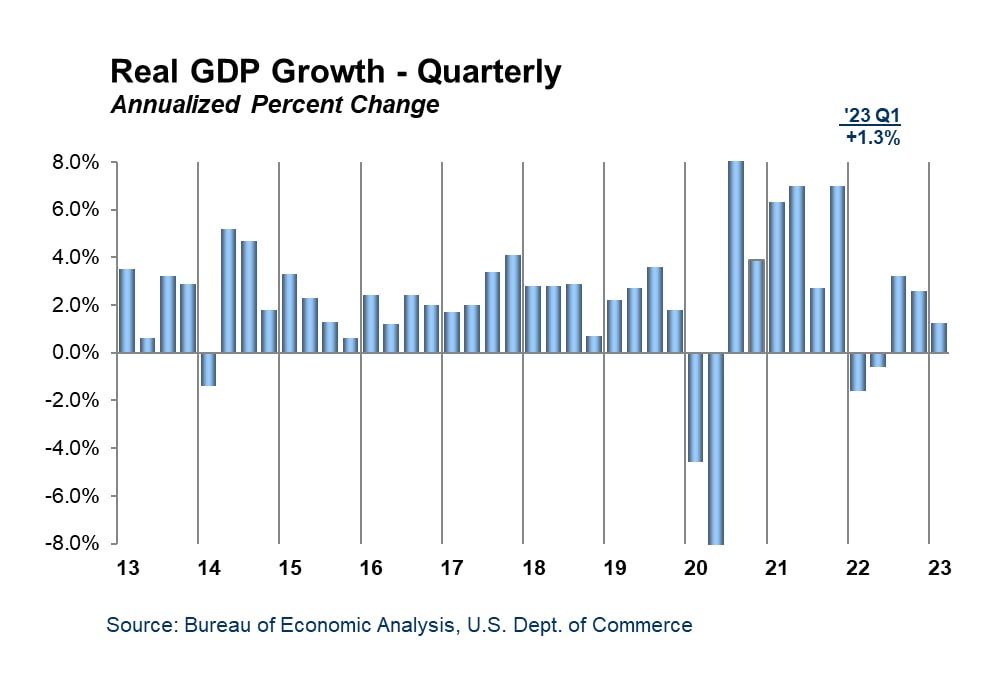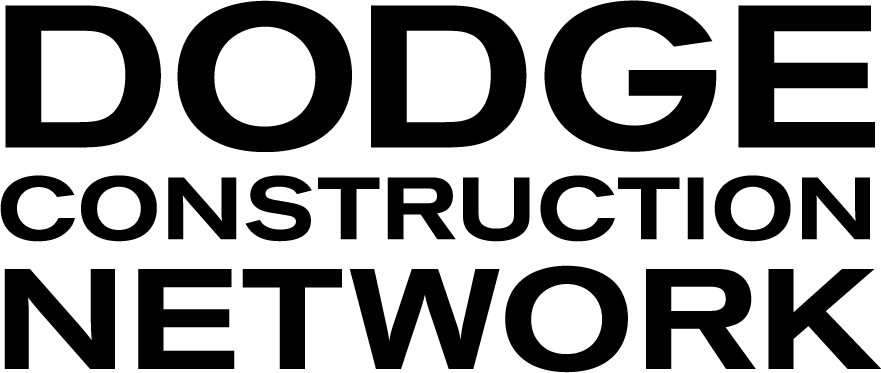The recently released Gross Domestic Product (GDP) Second Estimate by the Bureau of Economic Analysis (BEA) showed a slight increase in GDP, which grew at an annualized rate of 1.3% in the first quarter, surpassing the initial estimate of 1.1% reported last month. These updated figures primarily reflect an upward revision to private inventory investment. The upward revision in GDP signifies steady economic conditions, suggesting that businesses and consumers confidence continued to weather higher prices and concern over recession in 2023. This optimism bodes well for the overall economy.
However, while there has been an overall increase in the first quarter GDP estimate, certain components experienced contrasting trends. The boost in consumer spending was partially offset by decreases in private inventory investment and residential fixed investment. The decrease in residential fixed investment reflects a slowdown in housing construction as businesses and individuals scaled back their spending on residential structures, such as new housing units, renovations, and improvements. Factors such as rising material costs and mortgage rates, labor shortages, and affordability concerns have been contributors to this decrease. The drop in residential fixed investment calls for renewed focus on addressing affordability issues, improving construction productivity, and fostering innovative housing solutions.
In conclusion, the upward revision of the first-quarter GDP growth to 1.3% reinforces a positive outlook for the US economy. This increase in economic activity serves as an encouraging indicator for the construction projects planned for this year and beyond. Despite the persistent economic challenges, such as elevated costs and a tight labor market, the economy exhibited resilience in the first quarter. Thanks to these optimistic signals, it is expected to maintain its strength in the upcoming months. To successfully navigate these ongoing challenges, it is crucial that we adopt a proactive mindset. By doing so, we can foster a resilient economy that benefits businesses, individuals, and the construction industry as a whole.

